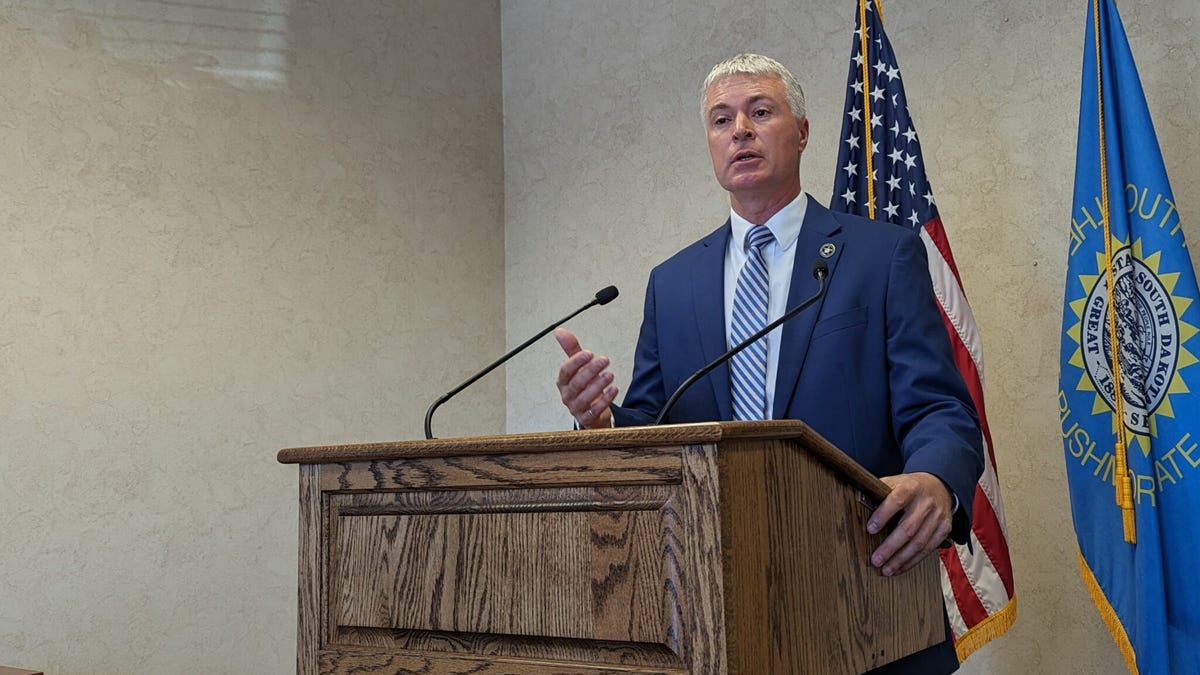Dallas, TX
Eddie Bernice Johnson, who broke barriers, represented Dallas in long House career, dies
/cloudfront-us-east-1.images.arcpublishing.com/dmn/I6OENSBNH5BN3BH3NSLFSR2FVY.JPG)
Dallas Rep. Eddie Bernice Johnson, a trailblazing Black woman who spent decades as North Texas’ most powerful Democrat, allowing her to leave a generational impact on the region’s development, died Sunday, The Dallas Morning News has confirmed. She was 88.
Dallas Mayor Eric L. Johnson confirmed her death on social media, and a source close to the family confirmed it with The News.
News of her death sparked an outpouring of tribute from friends and public servants she mentored.
“She was a leader who took care of Dallas and Texas above everything else,” said former U.S. trade representative and former Dallas Mayor Ron Kirk. “She’s been a friend and mentor. Dallas and the country has lost a great leader.”
State Sen. Royce West, D-Dallas, replaced Johnson in the Texas Senate. He called her a mentor.
“We’re all forever indebted to her and her work and her legacy will live on forever,” West said. “Throughout the 30 years that she served, we confided in one another and strategized together on issues. That counsel will be missed, but the lessons taught will remain and be passed on for future generations.”
Born in Waco in the segregated South, Johnson shattered barriers at nearly every stage of her political and professional career, paving the way for more women and African Americans to obtain leadership roles in politics, nursing and other fields in Texas and beyond.
She was the first African American to serve as chief psychiatric nurse at Dallas’ VA hospital; the first African American from Dallas to serve in the Texas Senate since Reconstruction; the first registered nurse elected to Congress; and the first Black woman to chair the House Science, Space and Technology Committee.
Johnson’s district, anchored in southern Dallas County, ebbed and flowed many times during her 30-year tenure as the Legislature and federal courts adjusted the lines in response to census counts and lawsuits. Designed to favor non-white voters, it initially snaked into Collin County and spilled into Tarrant County, cobbling minority neighborhoods to yield a population that was half Black and 17% Hispanic.
She represented downtown Dallas for much of her tenure but routinely used her clout to tend to regional needs, aiding with Dallas Love Field expansions and major highway projects.
Former House Speaker Nancy Pelosi called Johnson a “visionary pioneer” when her portrait was unveiled in November 2022 to hang alongside those of other previous science committee chairs.
At 87, Johnson was the oldest member of the House when she left office in January 2023.
At the portrait ceremony, Sen. Maria Cantwell, D-Wash. — chair of the Senate commerce and science panel — called Johnson a “champion” and a “person we need to put on a pedestal.”
Johnson used her gavel to push back on Republican attempts to block action on climate change and advance support for scientific research and STEM education. She shepherded major funding for science and technology, including NASA, and played a key role in securing tens of billions of dollars to revive the U.S. semiconductor chip industry.
Rep. Frank Lucas, R-Okla., spoke of the near “miraculous” achievements Johnson oversaw despite leading the science panel in an era of bitter partisanship — none of which, he said, would have been feasible “without EBJ’s style, skill, subtlety, understanding, patience and persistence.”
When she announced her retirement in 2021, Johnson said: “I’ve worked hard. It’s not just a title — it’s a job. It’s been some rugged times, but I have not acknowledged it. I was determined that I wouldn’t just be a title. I wanted to deliver. I thought about the district and all the needs that it had.”
A lasting testament to that history is Dallas’ Union Station, a once racially segregated facility that in 2019 was renamed after Johnson.
“You’ve heard that this station was segregated, but now, it fits me,” she said at the time, tearing up at the ceremony unveiling the new name. “It’s open to all, regardless of religion, regardless of the origin of birth, regardless of party, regardless of gender. That’s what I love.”
The intermodal station on the southwestern edge of downtown connects passengers to DART light rail, TRE commuter trains, local buses and Amtrak. Then-Mayor Mike Rawlings lauded her ability to make connections.
“She has worked across the aisle for the betterment of her constituents on aviation, flood control, homelessness, homeland security, law enforcement, science, and, of course, transportation,” Rawlings said. “I couldn’t think of a more fitting person to rename our Union Station after.”
The National Science Foundation named a program aimed at improving diversity in Science, Technology, Engineering and Mathematics for Johnson. The program, launched in 2016, connects students and educators with STEM professionals and issues grants.
Influential panels
Johnson’s résumé wasn’t merely defined by firsts.
Her status as a senior Democrat, one who served on influential panels like the House transportation committee, stood out in a state dominated by Republicans, and it provided her significant power, particularly during years in which her party controlled the House.
Republicans knew they needed to work with Johnson, who nurtured bipartisan alliances even as she remained a dyed-in-the-wool Democrat who often chided the GOP.
She leveraged those partnerships and her position to secure a seemingly endless list of projects for North Texas, covering everything from massive roadworks to flood control improvements along the Trinity River.
“She will go down in history as being the single most effective legislator in the history of the state of Texas for bringing home infrastructure and resources to North Texas. She’s just been uber effective,” Dallas Mayor Eric Johnson said at her portrait ceremony.
Johnson’s career wasn’t without criticism or controversy.
Challengers in the second half of her congressional career accused her of hanging onto her seat too long, while also arguing that her district continued to suffer from issues like poverty and underinvestment. Her election to the U.S. House in 1992 was marred by accusations that she, as the leader of a Texas Senate redistricting panel, drew a seat for herself. Texas Monthly twice included her on its list of worst state legislators in Austin.
The congresswoman’s biggest career flap came in 2010, when The Dallas Morning News revealed she had improperly awarded thousands of dollars in scholarships to four relatives and a top aide’s two children. She ultimately paid back the money, saying she had “unknowingly” violated the rules.
But those missteps never dimmed her popularity in southern Dallas, where she never really endured a substantive election challenge. Nor did they affect her standing in Washington, where she enjoyed respect across generations of lawmakers and praise from leaders in both parties.
“A pioneering African American woman who has been instrumental in making one of America’s most diverse cities into a growing hub for research and innovation that inspires the world,” Maryland Rep. Steny Hoyer, then the House majority leader, said of Johnson in 2019.
A path to leadership roles
Johnson was born Dec. 3, 1935, the second of Edward and Lillie Mae Johnson’s four children. Raised in Waco, she moved to Dallas in her 20s.
She was close to her mother. But she described her father as “probably the best friend I ever had,” calling him “my real hero.” When her dad ran a trucking business, she would sneak out of bed at night to sit on the front steps and wait for him to come home.
“I remember having him grab me and hug me, and I remember my face feeling his whiskers because he hadn’t shaved that day driving in,” she said in 1987 in a wide-ranging interview with The News.
Johnson’s parents exposed her and her siblings to arts and culture at an early age, taking advantage of the perks of living in a college town. Baylor University had a “Black day or night” for its theater productions and her family was almost always there, she recalled.
“We’d go to see all the plays, which were not that common at that time in the Black community,” she said.
She maintained a lifelong love of theater and music, saying in 2001 that if she wasn’t a lawmaker, she would be a “volunteer in the arts.” Her parents, who dabbled in community politics, weren’t surprised she ended up running for office.
“She always wanted to be boss of all the children,” her mother told The News in 1987.
Johnson left Texas in the early 1950s to get a nursing certificate at St. Mary’s College in Indiana. Most of the students were white, making it “the first time in my life that I was really into sort of an all-white world,” she said. Her classmates, none from Texas, called her “Tex.”
There were signs of a political awakening there, too.
President Dwight D. Eisenhower once came to town, also home to the University of Notre Dame, Johnson recalled, and the future congresswoman got to shake his hand. She was “so impressed” she became a Republican, until President John F. Kennedy, a Democrat, came along.
Johnson would later earn a bachelor’s degree from Texas Christian University and then a master’s degree from Southern Methodist University.
Overt racism
She first returned to Texas for work, getting hired sight unseen at Dallas’ VA hospital — an experience she would never forget.
Johnson had been told she could live in a dorm on campus. But when officials saw she was Black, “they were just shocked,” she said. The nurses’ quarters were no longer open to her. Officials would go into patients’ rooms ahead of her to “say that I was qualified,” she said.
“That was really the most blatant, overt racism that I ever experienced in my life,” she recalled.
Johnson nearly quit. But the chief nurse urged her to stay, telling her, “You need to do this for your people,” Johnson recounted. She did stay, eventually working her way up to chief psychiatric nurse.
“It was very challenging,” she said in 2020. “But any job where you’re an African American woman entering for the first time would be a challenge. They had not hired one before I got there. Yes, it was a challenge, but it was a successful venture.”
Those sort of inequities spurred her to political activism. Friends and community leaders encouraged her to run for the Texas House, finally convincing her in 1972.
In a stark sign of the times, The News’ un-bylined story about her candidacy was titled, “Woman Seeks Seat in House.” It made a point to describe Johnson, whose marriage had recently ended, as a late 30s divorcee with a 14-year-old son.
The political novice won, fueled by a scrappy family effort that saw her teenager then, Kirk, take cooking classes so mom could spend more time campaigning.
Rising Democratic star
Johnson faced bigoted attacks from those who said a spot in the state House was a “man’s job, a lawyer’s job and a job for a family person,” The News noted during her 1972 run. Her victory made her the first Black woman in Dallas elected to public office, and made her a rising Democratic star.
She became the first woman in the Texas House to chair a major committee — the Labor Committee in the late ‘70s. She earned a plum role in the state Democratic Party. She captured the attention of President Jimmy Carter, who named her to a leadership post within the U.S. Health, Education and Welfare Department.
Carter’s loss in 1980 sent Johnson into the political wilderness for a time. She took a job with a national nursing advocacy group. Then a state Senate seat came open in southern Dallas in 1986. She ran and won.
With the higher profile came added scrutiny.
Texas Monthly in 1989 skewered Johnson’s temper, saying “her primary legislative tool is anger” and that “when things don’t go her way, look out.” The magazine, citing her work on improving minority representation, also noted that she could be “effective and even eloquent.”
When Johnson turned her sights to Congress in 1992, she revealed her intent in a startlingly unusual way: while leading a meeting of the Senate redistricting subcommittee that was drawing boundaries for the newly created seat.
Rivals jabbed at her over accusations that she crafted a district to her liking. Johnson batted away the criticism and became the second Black woman elected to Congress from Texas, after former Houston Rep. Barbara Jordan.
Johnson soon became a force in Washington, focusing on issues ranging from voting rights to education, health care to transportation.
Congressional Black Caucus chairwoman
In 2001, she was elected chairwoman of the Congressional Black Caucus, vaulting her to the national stage. Ebony magazine named her one of the 10 Most Powerful African American Women.
Her relationship with President George W. Bush, a fellow Texan, spotlighted her approach in D.C.
“We don’t agree on a lot, but we’re friendly about it,” she told The News in 2001, saying in another interview that year that “if he walked in here right now, I’d probably greet him with a hug, as he would me.”
Johnson’s growing seniority positioned her to secure significant funding and projects for North Texas. For many years, she formed half of a formidable duo with Sen. Kay Bailey Hutchison, a Dallas Republican likewise legendary for her ability to deliver for the region.
It’s difficult to name an aspect of North Texas’ development in the last three decades, particularly infrastructure, that didn’t have Johnson’s imprint.
“Johnson was supportive of DART way before it became popular,” Gary Thomas, the former president and chief executive of Dallas Area Rapid Transit, said in 2011, hailing Johnson as a “visionary.”
Republicans in Texas often looked to Johnson for help securing federal aid, especially during periods of Democratic rule.
Johnson, for years the only Democrat in Congress from North Texas, sometimes shouldered that burden alone. In 2009, for instance, no other lawmaker from the Dallas area voted for President Barack Obama’s stimulus package.
“Though I stood alone in this area in voting for it — and I was called a spendthrift — I’ll take it,” she said in 2013 at the ribbon-cutting for the DFW Connector, a $1 billion expansion of interchanges on the north side of the airport. The project received the largest stimulus award of any transportation project in the country.
Johnson’s status as the first registered nurse elected to Congress gave her gravitas on issues such as health care and scientific research, as well, helping her ascend to a coveted chairwoman spot atop the House Science, Space and Technology Committee.
Yet, when her influence didn’t sway her colleagues, she could be a bulldog.
She spent years unsuccessfully trying to get a posthumous Medal of Honor for World War II icon Doris “Dorie” Miller, a Black mess attendant from Waco who heroically manned a machine gun during the attack on Pearl Harbor.
“I have lobbied the Department of the Navy about as much as I know how to lobby them,” Johnson said at one point, though she would eventually at least be able to celebrate the Navy’s decision to name an aircraft carrier after her hometown hero.
As Johnson’s number of terms in Congress went into double-digits, questions began to arise about how long she would stay in office.
Adversaries and allies
Critics noted that for all she’d done for North Texas, her southern Dallas County district hadn’t fully shared in the region’s prosperity. Her sometimes-brusque style irritated adversaries and alienated would-be allies. She maintained deep-seated rivalries with some other heavyweight North Texas Democrats, such as Dallas County Commissioner John Wiley Price.
The friction points came to a head in 2010, when The News revealed that Johnson had broken anti-nepotism rules by awarding scholarships from the Congressional Black Caucus Foundation to four relatives, including two grandchildren, and to a top aide’s two children.
Johnson offered shifting explanations for the obvious conflict of interest, which was roundly criticized by experts on philanthropy and ethics, and by the Congressional Black Caucus’ leaders. She ultimately said she had “made a mistake without knowing I made a mistake.”
The scandal led to her toughest primary in 2012, though she ended up crushing former state Rep. Barbara Mallory Caraway and Dallas attorney Taj Clayton in the primary with more than 70% of the vote.
It was Johnson’s last serious challenge, as she repeatedly postponed retirement.
“I fully intended to retire after my current term, but with much pressure and encouragement, I have agreed to one more term,” Johnson told district residents in 2019 in campaign robocalls. “I plan to continue to work hard to serve District 30.”
After announcing her retirement in November 2021, Johnson endorsed as her successor first-term Texas state Rep. Jasmine Crockett, 45 years her junior.
With Johnson’s backing, Crockett became only the second representative from District 30, created after the 1990 census.
“I really can’t imagine the challenges she went through,” Crockett said after winning the nomination in a runoff. “She created the pathway for me.”
Washington Bureau chief Todd J. Gillman and staff writers Joseph Morton and Gromer Jeffers Jr. contributed to this report.

Dallas, TX
Former Dallas Cowboys DE, Robert Quinn, arrested in South Carolina

Robert Quinn (Charleston Co. Jail)
NORTH CHARLESTON, S.C. – Former Dallas Cowboys defensive end Robert Quinn was arrested in South Carolina Friday morning after police said he tried to leave the scene of an accident.
Quinn, 34, was charged with leaving the scene of an accident with property damage and reckless driving, jail records show.
What we know:
Police in North Charleston, South Carolina responded to a car dealership just after 2 a.m. Friday because of a collision involving a red truck.
The North Charleston Fire Department arrived first on the scene and told police that the suspect might be attempting to leave the scene of the crash in another car.
When police arrived, they found Quinn in the passenger seat of a white Dodge Challenger that had its reverse lights on. The vehicle’s driver placed the car in park and told police she had been called by Quinn to “pick him up,” according to a police report.
Police said Quinn had visible injuries to his head and face, had slurred speech and was uncooperative with officers who asked for his identification.
Quinn eventually provided his identification to officers, but asked himself “where is my wallet” while his wallet was in his hand before dropping it in his lap.
The police report states a maroon Ford F-150 registered to Quinn was on the other side of the parking lot and looked to be the vehicle that started the collision.
Police said Quinn’s truck hit the passenger side of a Honda Element, which was pushed into a blue Ford F-150 that hit another car.
Officers asked Quinn to get out of the Challenger, but Quinn resisted by holding the door to the car, the report states. Police removed Quinn from the vehicle, and he was “escorted to the ground” by officers because he was trying to pull away from them.
Officers interviewed the woman with Quinn, who said she had met him at G-Club, a gentleman’s club, where she works, earlier that night.
Another employee of the club came to the scene and said Quinn had left alone about an hour before the collision happened.
Timeline:
Police said they used city cameras to build a timeline of the crash.
The police report states Quinn’s truck was seen driving down the road around 2 a.m. Friday and was veering left, crossed an intersection, a median and then onto dealership property.
City cameras did not pick up the collision, but it can be heard, the police report states.
Police said around 2:03 a.m. a single person is seen walking through the parking lot and a few minutes later that person walked to a Valero gas station.
At 2:07 a.m., the person is seen walking back to the dealership parking lot while stumbling and falling several times, the police report states.
About a minute later, a white Dodge Challenger is seen entering the parking lot around the same time that the fire department arrived, according to the report.
Dallas Cowboys Defensive End
Quinn played the 2019 season with the Dallas Cowboys after being traded from the Miami Dolphins for a sixth-round pick.
Quinn was suspended for the first two games of the season after violating the league’s policy on performance-enhancing substances. He was named the team’s starting right defensive end when he was reinstated.
Quinn finished the season with 25 tackles, 11.5 sacks and two forced fumbles.
Quinn signed a five-year, $70 million contract with the Chicago Bears the following season.
Quinn was drafted 14th overall by the St. Louis Rams in 2011 and spent six years with the team before going to Miami, Dallas, Chicago and ending his career in 2022 with the Philadelphia Eagles.
Quinn was born in North Charleston, South Carolina, where he played high school football before playing college football for the University of North Carolina.
The backstory:
This isn’t Quinn’s first tangle with law enforcement.
July 2012 – Florissant, Mo.
Quinn was arrested for driving while intoxicated in July 2012 in Florissant, Missouri, while a member of the St. Louis Rams.
Florissant police said Quinn was involved in a single-car accident on an exit ramp of Interstate 270 on July 10, 2012. Police said he was cooperative with them during the arrest.
Quinn was also charged with failure to exercise a high degree of care and having no insurance.
August 2023 – Summerville, S.C.
In August 2023, Quinn was arrested in Summerville, South Carolina after police found four unoccupied vehicles in a subdivision had been damaged.
At some point, Quinn allegedly exited his vehicle and got into a physical altercation with a woman before leaving the scene.
According to an accident report, a Ford F-150 truck crashed into multiple vehicles. Responding officers proceeded to search the vehicle and found an empty whiskey bottle on the passenger side floorboard.
Per the police report, the unidentified woman was sitting in her driveway when the suspect hit two parked vehicles. The driver then exited the truck and offered to buy her beer, the woman told investigators.
Quinn was charged with third-degree assault and battery, hit-and-run of an attended vehicle, four counts of hit-and-run property damage and striking fixtures on or adjacent to the highway.
What’s next:
Quinn was booked into the Charleston County, South Carolina jail.
Jail records show Quinn has a preliminary court date set for Feb. 27, 2025.
The Source: Information in this article comes from the North Charleston police department and previous FOX reporting.
Dallas, TX
Dallas Snowfall Totals: How much snow fell on Thursday and Friday?

DALLAS – North Texas got less snow than expected overnight.
FOX 4 Weather Meteorologist Evan Andrews said it was one of those crazy forecasts where some people got exactly what they expected, and others got the opposite.
“Some of you got that heavier precipitation [on Thursday]. Others were waiting for some overnight, and the precip overnight really never got going. We got a little bit of light snow on the backend but not a ton,” he said.
For snow lovers, the snow that was on the ground from Thursday is still there. However, the total accumulation did not increase much overnight.
Snowfall Totals (as of 4 a.m. Friday)
Overall, the areas of highest accumulation were north of Highway 182 in Cooke and Grayson counties. Areas like Gainesville, Sherman, and Bonham got more than 6 inches of snow.
A lot of people in Wise, Denton, and Collin counties got between 3 and 6 inches.
Fort Worth and North Dallas saw between 1 and 3 inches.
People south of Dallas got less than an inch of snow.
Thursday Snowfall (as of 9 p.m.)

Future Snowfall
No additional accumulation is expected on Friday, with the exception of maybe a few light flakes early Friday morning.
The Source: The information in this story comes from the FOX 4 Weather team.
Dallas, TX
Addison's WaterTower Theatre finds new stage for its summer musicals

For its 2025 season, Second Thought Theatre is going all-in on world premieres written by Dallas-Fort Worth playwrights.
While exploring the question of “What space does STT provide in DFW?” executive director Parker Davis Gray says, “STT is a place where audiences intentionally attend to be challenged by and wrestle with sharp new stories and an electric take on reimagined classics.”
The company likens this perspective to the work produced by the independent TV and film production company A24, and says that has inspired this upcoming season.
Opening Second Thought’s 21st season is Blake Hackler’s Healed, which follows Gail, who has been sick for 25 years.
Every doctor, every test, every treatment — none of it has worked. Now, with nothing left to lose, she sells everything and heads to a radical health center in the Texas Hill Country, run by the enigmatic and controversial Dr. T. Will this be her cure, her salvation, or something else entirely? It runs April 25-May 10, 2025.
Hackler’s previous work at STT includes the premieres of What We Were, The Necessities, and the 2018 Ibsen adaptation Enemies/ People.
Ringing in the summer is the sci-fi experiment Your Wife’s Dead Body, written by STT artistic associate Jenny Ledel in her playwriting premiere.
While Ledel is remembered for her performances in Belleville, Grounded, and What We Were, this shift to the other side of the table has been years in the making.
“Over the past few years, I’ve been reading Jenny’s plays and attending readings of her work,” says Gray, “she has such an accessible, inviting, and exciting voice that will resonate with Dallas as we begin to navigate the unknown landscape the next few years will bring us.”
Your Wife’s Dead Body takes place in the near future, as Jane takes advantage of a new AI technology that would extend her lifespan … even if she’s not around to see it for herself. A play about relationships, the nature of self, and what may or may not remain of us when we leave this life behind, this story asks us to consider the new and difficult questions humans may face as new technologies emerge.
Ledel’s world premiere will be directed by former STT artistic director (and Ledel’s husband) Alex Organ. It runs July 11-26, 2025.
To close out the 2025 season, STT will dive into a new genre with INCARNATE by STT’s own Parker Davis Gray.
Trapped in her cell, Rosamund is hellbent on escaping her fate while the Man who kidnapped her struggles with the consequences of what grief can do, and how far he will go to escape it. Can they live with themselves? Or more importantly, who else is living with them?
A horror/thriller that follows two artists over the course of a year in their seemingly pointless pursuit of creation while suffering under great grief. Directed by Jenna Burnett, who also directed the original reading at Undermain Theatre, it runs October 17-November 1, 2025.
In addition to a world premiere-packed season, STT will continue its year-long playwriting incubator program, Thought Process, andadd another development program to the docket.
2025 will be the inaugural year of Second Thought Theatre’s Associate Director Program, a year-long cohort aimed at providing professional development through education, exposure, and opportunity. Three early-career professionals will have the opportunity to assist on one production of the 2025 season, gain training and receive feedback from professional directors, spend the year working on scene study with STT artistic director Carson McCain, and then end their year with each director taking the lead on one to three readings.
“The purpose of this cohort is to fill a gap we currently see in the DFW arts community,” says McCain. “We want to offer early career directors a safe place to develop their craft and seek feedback from their peers and other professionals. We want this to be a group that allows directors to grow without the pressures of impressing a professional theater in order to be hired again. STT will serve as facilitators and educators, giving feedback, training, and a place to ask questions.”
Season subscriptions and individual tickets are now on sale at SecondThoughtTheatre.com. All productions will take place at Bryant Hall.
Second Thought Theatre Announces their new season centered around cost and consequence as they showcase the sharp and bold voices of local DFW playwrights.
-

 Business1 week ago
Business1 week agoThese are the top 7 issues facing the struggling restaurant industry in 2025
-

 Culture1 week ago
Culture1 week agoThe 25 worst losses in college football history, including Baylor’s 2024 entry at Colorado
-

 Sports1 week ago
Sports1 week agoThe top out-of-contract players available as free transfers: Kimmich, De Bruyne, Van Dijk…
-

 Politics1 week ago
Politics1 week agoNew Orleans attacker had 'remote detonator' for explosives in French Quarter, Biden says
-

 Politics1 week ago
Politics1 week agoCarter's judicial picks reshaped the federal bench across the country
-

 Politics6 days ago
Politics6 days agoWho Are the Recipients of the Presidential Medal of Freedom?
-

 Health5 days ago
Health5 days agoOzempic ‘microdosing’ is the new weight-loss trend: Should you try it?
-

 World1 week ago
World1 week agoIvory Coast says French troops to leave country after decades

















